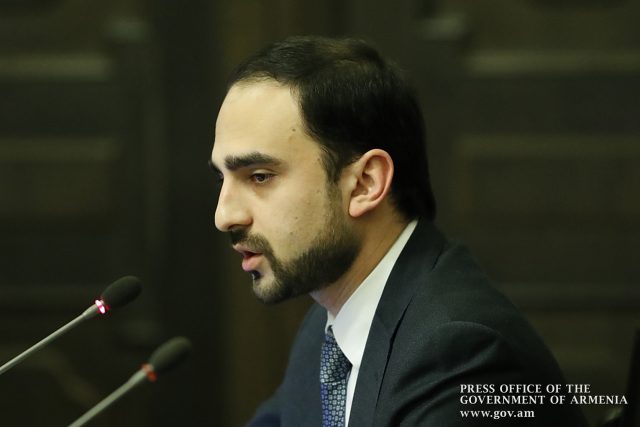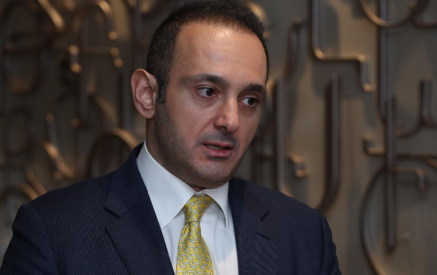The National Assembly called an extraordinary session to extend the state of emergency. Deputy Prime Minister Tigran Avinyan provided the main reports and said that, aside from causing a healthcare crisis, the pandemic also caused a humanitarian crisis, which had an impact on all aspects of social life, including the economy, social relationships, and living conditions. “The pandemic debunked many myths and it made us think twice about the role of the state and human abilities. Now, all states have been faced with a challenge: to effectively control the spread of the virus and prepare for the post-coronavirus world. There is no one effective strategy to fight the coronavirus; it is impossible to completely get rid of it. The creation of a coronavirus vaccine will take place in several months, if not in one year. The majority of states have the desire to control uncertainty. Society has an important decision to make: prevent as many casualties as possible and slow the spread of the virus so that the healthcare system can take care of patients but put the economy in danger, or allow the virus to spread rapidly so that people can build immunity to it and so we can return to our normal lives quickly but have many casualties.” Avinyan said that the majority of states have chosen the first option while also not eliminating the possibility of choosing the second option.
Avinyan also spoke about the government’s strategy to control the virus. Approximately 12 percent of the population of Armenia, more than 353,000 people, are considered to be in the at-risk group due to their age. There are 77,418 people in Armenia with diabetes, 71,025 with ischemic heart disease, and 145,408 citizens with hypertension according to official data. There are people who have several chronic illnesses.”
Tigran Avinyan said that, if the government did not take action, 89 percent of the population would have been infected. The number of critical cases in Yerevan would’ve reached 8,200, but the number of infected overall would’ve reached 110,000 in Yerevan alone. The healthcare system would not have been able to care for even the current cases. “We would’ve had at least 30,000 infected people in Yerevan and hundreds of deaths. But we did everything we could to prevent the spread of the virus, to provide the healthcare system with the ability to take care of patients, and to prevent the spread of the virus among at-risk groups.”
He said that the government has created 4 stages of action. Right now, the government is in the third stage, which is meant to limit movement, establish strict limitations, and increase the number of tests.
Read also
As far as why it is necessary to extend the state of emergency, Tigran Avinyan said that it is to help keep the situation under control. Limitations may be increased or decreased depending on how the virus spreads. “At the moment, we will be able to treat 1,700 patients, which will allow us to also have 4,500 people infected according to our calculations.”
3,029 people were placed in self-isolation. It will become clear in 14 days whether or not they have the virus. According to data compiled by the app, 60,000 people downloaded it, 4,900 tests were considered to be in the red zone, 1,600 people were contacted, 21 people were sent to be tested, and 4 people were confirmed to have the coronavirus. The entire system is connected to the healthcare system and the police database. The lockdown needs to continue at least for the duration of April. There will also be limitations placed on public transportation. The entry of foreign citizens will be forbidden.
Several types of businesses will be allowed to open as a result of how the virus has spread. Some businesses will be allowed to operate online.
Hripsime Jebejyan





























































